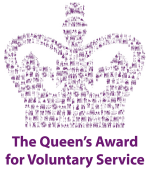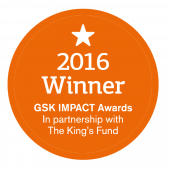Our CEO Monty Moncrieff discusses the new European Drug Report 2015, and increasing concerns about chemsex
The annual European Drug Report has just been published. It offers interesting insights into trends and development in drug supply, use and treatment across the EU. As well as lots of information about well-established drug problems related to heroin and crack, this year’s report provides more confirmation of trends with newer drugs and specific populations. Chemsex is being increasingly observed in European cities, with an increase in presentations to treatment for methamphetamine use.
The report doesn’t provide data broken down by sexual orientation or gender identity but does explicitly state the growing concern of ‘slamming’ and chemsex parties with challenges for public health relating to drugs, sexual health and HIV transmission. It adds to last year’s British data from the Crime Survey for England and Wales which found levels of drug use in the past year three times higher for gay & bisexual men than their heterosexual counterparts. The levels for lesbian & bisexual women were over four times greater than for straight women, although this level of need is all too frequently left out of public health debate.
The evidence of increasing use once more calls into question the need for effective treatment services and support for users. Here the European report identifies a gap we have been campaigning to highlight for years: the need for targeted treatment. The report concludes that access to specialist services, e.g. homeless users, older users or LGBT people, is limited across the continent, despite many countries reporting a need for this kind of provision.
We have plenty of evidence that LGBT people report negative attitudes from mainstream health service providers. In focus groups our own service users tell us about the barriers they have faced accessing drugs treatment: services have little experience of the newer drugs they’re using, and don’t understand the way they’re being used. Drug services are great at understanding a heroin user, and provide a range of familiar treatment interventions, but are less aware of how Grindr and other apps are being used to find chemsex parties and locate the nearest chill out with mephedrone on tap all Sunday long.
We’ve done work with hundreds of frontline drug workers and sexual health staff to increase awareness of chemsex and the new drug market for gay and bisexual men. We’ve also contributed to Project NEPTUNE, new clinical guidance on the treatment of emerging club drugs and other novel psychoactive substances (NPS). I’m constantly impressed by the desire to learn and to engage with this group, and I’m pleased our Antidote service has contributed to skilling up our treatment workforce. However a high proportion of LGBT people still cite a preference for LGBT specialist services, yet here we’ve seen little advance.
The approach to commissioning services at a local level leaves little resource for specialisms, especially as public health budgets are further squeezed. In a city like London this means than services are being planned and delivered as 33 separate approaches – but who really thinks of this great city as 33 smaller towns rather than as one? The dilution of resources away from a city-wide, coordinated, and cost-effective approach is doing our LGBT populations a disservice. I’d love to see commissioners coming together to plan for their LGBT communities in a different way. The opportunity for integrated services that tackle drugs, alcohol, sexual health and mental wellbeing across the capital is surely too exciting to miss?
Our 2014 report Out Of Your Mind contains an evaluation of drug and alcohol treatment for LGBT people, and our recommendations for Public Health England, local commissioners, providers and front line staff. It comes with a set of practical toolkits for commissioners, managers and practitioners to assess their practice and develop improvement plans to improve their LGBT competence. We’ve also been working with the Care Quality Commission to ensure their new duty to inspect substance misuse services includes consideration of their work with minority populations. Applying a coordinated approach to planning, delivering and evaluating services for LGBT people can have an enormous impact on improving their treatment outcomes.
Monty
London Friend’s Antidote service is the UK’s only LGBT specific drug & alcohol treatment agency staffed by LGBT people. We can provide training on all aspects of working with LGBT service users in health and care settings, including workshops on club drugs and NPS. You can support our work by making a one-off or regular donation or by joining our LGBT volunteer team.




